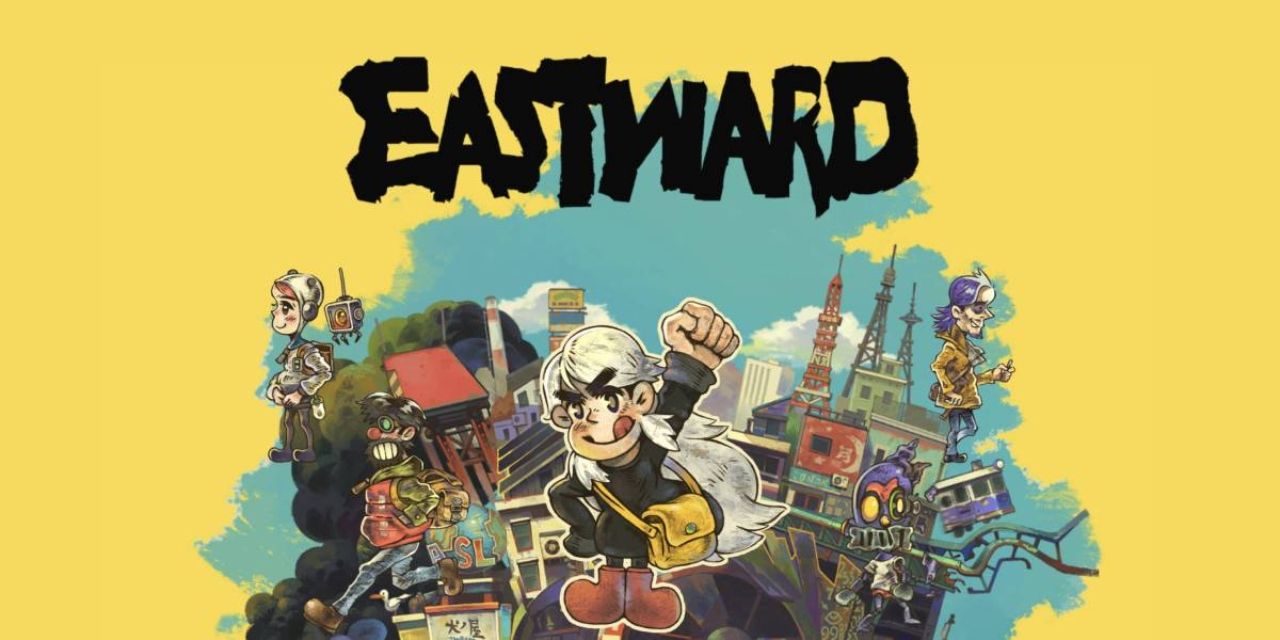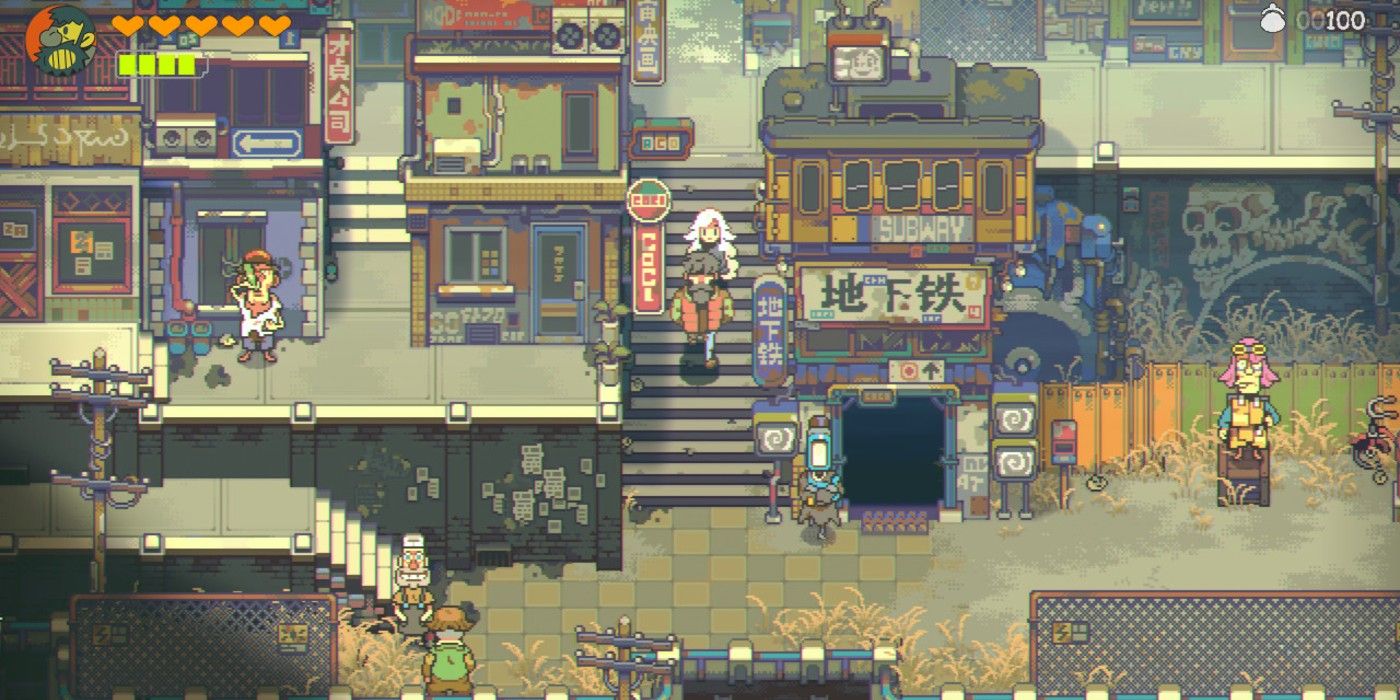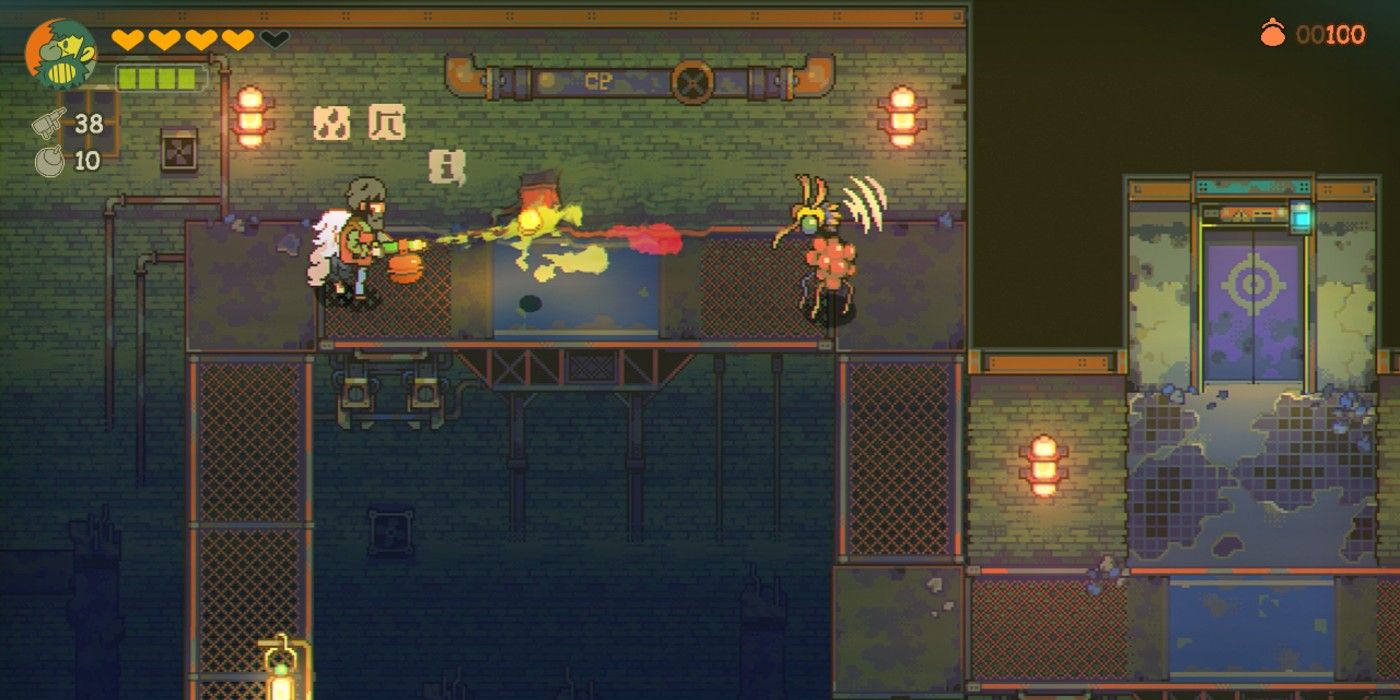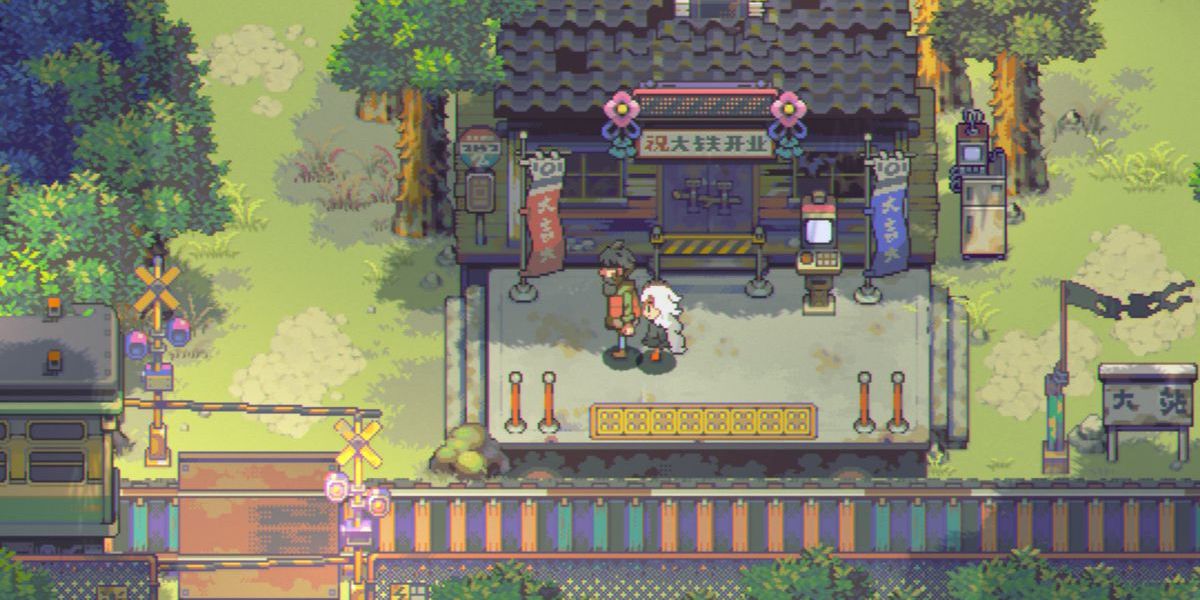
From Chinese developer Pixpil comes Eastward, a tale of Sam and John, an unlikely pair that have spent their lives underground until a mysterious vision sends them to the surface and across a post-apocalyptic world. The setting, however, is much less dreary than the premise might sound, with Eastward's classic RPG influences bringing to life a pleasant landscape that plays host to Sam and John's journey.
Critics have been sharing their thoughts on Pixpil's debut title, and the impressions seem to be widely positive. The general consensus seems to be that, while Eastward takes heavy inspiration from classic games like Earthbound and The Legend of Zelda, it is an experience uniquely of its own.

A common thread throughout the various reviews of Eastward is near-universal praise for the game's visuals and overall artistic direction. Jo Craig of DualShockers expressed how "the chibi characters bring 8-bit design into the present day, mixed with mind-blowing detail within the architecture of various towns. The amount of objects scattered around the vicinity encourages increased interaction with literally everything, and even though some interactions -- like turning on an outdoor tap -- have zero purpose, it all adds to the realism. Its cut-scene animation style may not be for everyone, but it's hard not to fall in love with the immersive, colorful expanse before you."
The characters that populate Pixpil's post-apocalyptic world have also been a standout feature, from the main duo to the faces players meet along the way. GamesRadar's Sam Loveridge praised Eastward's cast, highlighting how "through meticulously crafted underground dwellings to cities and the countryside between them, you'll meet a whole entourage of lovable rogues that will touch John and Sam's lives in various ways. Even if your time with these characters is brief before moving on, there's a depth to their presentation that's unexpected and utterly absorbing."

Of course, venturing across a post-apocalyptic world is bound to include some unsavory encounters. Both Sam and John have unique skillsets, making their approaches to puzzles and combat different. Loveridge of GamesRadar reflected that "the way the combat and puzzle-solving works is very evocative of classic Zelda dungeons -- particularly in its use of bombs and John's pan being a shoe-in for Link's sword. But really, it's the way you figure out the various ways the pair can work together in battle in brilliantly satisfying ways that make Eastward's combat stand out against its inspirations."
One feature of Sam and John's adventure that is getting a lot of discussion in particular across Eastward's reviews is the game's cooking mechanic. Instead of relying on regenerating health, Eastward puts a heavy focus on craft food and finding recipes to keep your party in tip top shape. Polygon's Nicole Carpenter wrote how "Eastward's cooking mechanic became one of my biggest joys" but "the disappointing scarcity of resources hidden around Eastward’s spaces" counteracted the fun in it.

However, the greatest critique of Eastward has to do with the game's pacing. Pixpil has designed the world for the player to soak in, but critics are a divided on just how successful that it was. Malindy Hetfeld of Eurogamer expressed how "the only real issue I have with Eastward on the whole is pacing. This isn't about the combat, and it's not so much about the journey -- it's a story about a found family that just wants to settle in a new home. As such, a lot of its 35 plus hour runtime takes place in towns and cities, where John helps out by running a multitude of errands. Here, you do a lot of backtracking, and I found myself hankering for the action to pick up again."
Others found the pacing to be a serious hindrance to their enjoyment of Eastward, with Jon Bailes of NME discussing how "the problem is that as the game progresses the action becomes more thinly interspersed, and what sits between is far less engaging. There are only a handful of settlements in Eastward, each packed with bright characters, and each with a few hostile areas spoking off them that you'll explore when the plot decrees. But, ultimately, you spend much more time hanging around conversing than off adventuring, and no matter how lovely the neighbors are, it becomes a drag." While a longer runtime may be great for those who want to spend as much time as possible in Eastward's world, it seems the game may also run the risk of overstaying its welcome.
Eastward is available now on Nintendo Switch and PC.
0 Comments